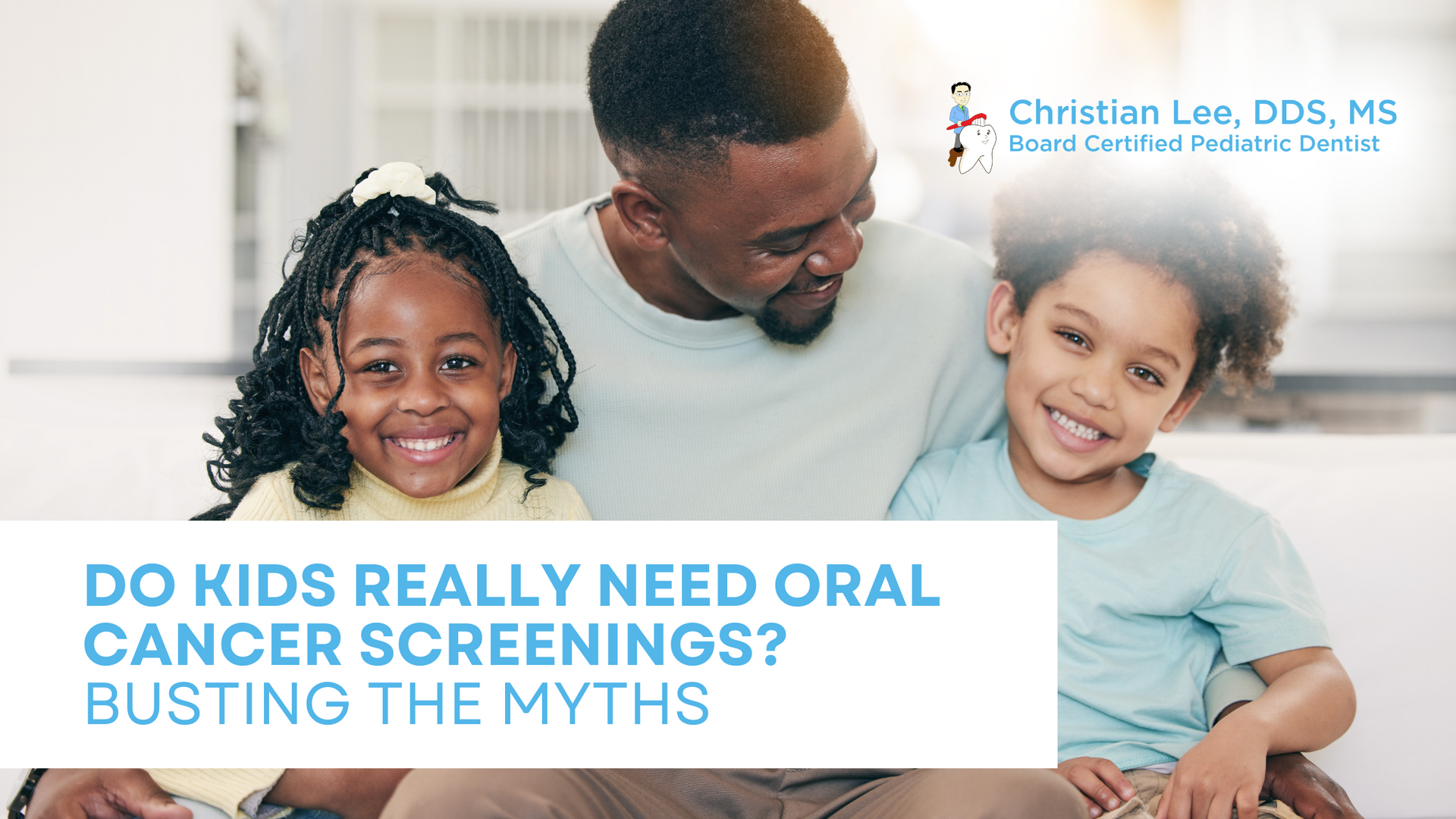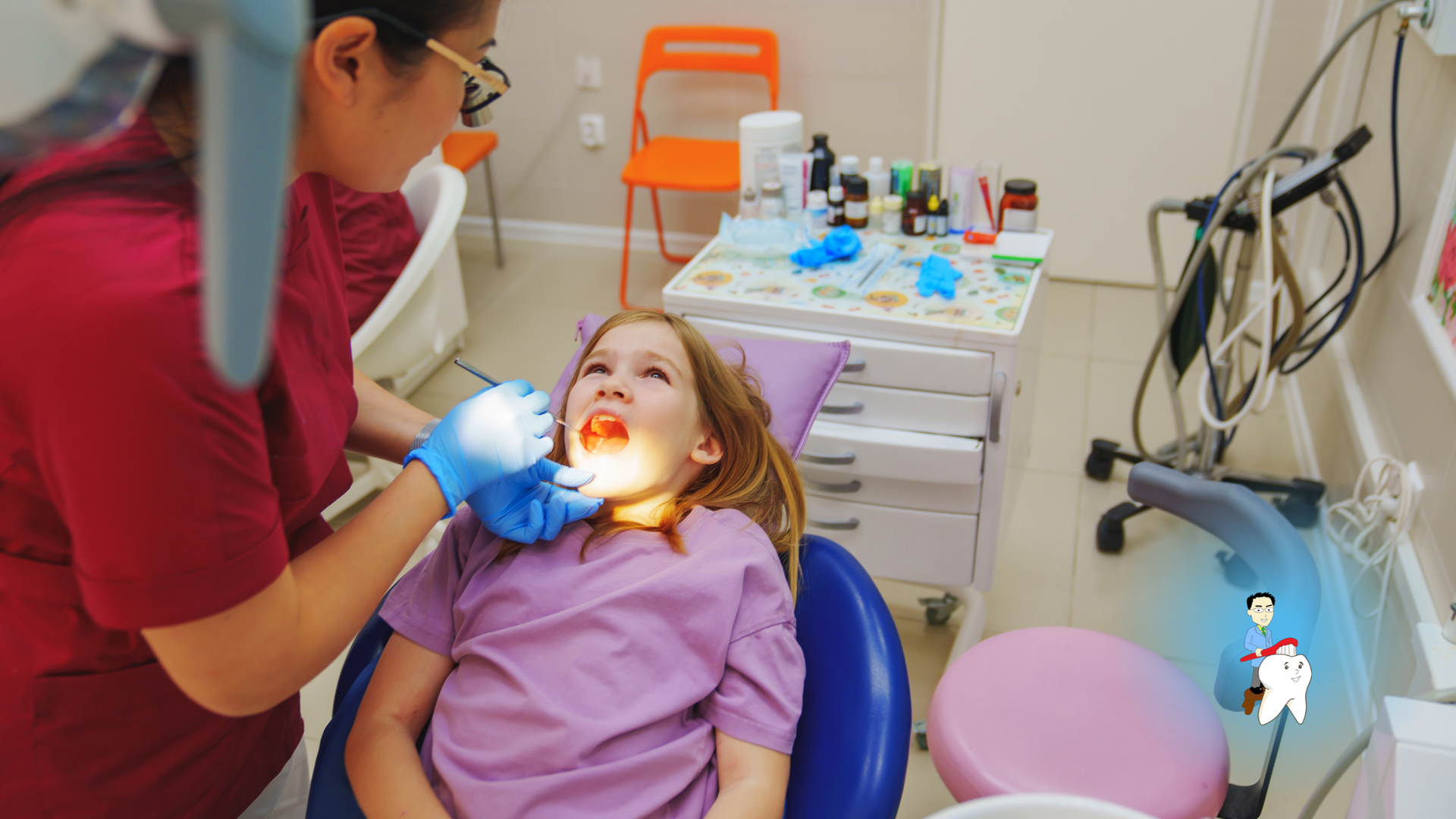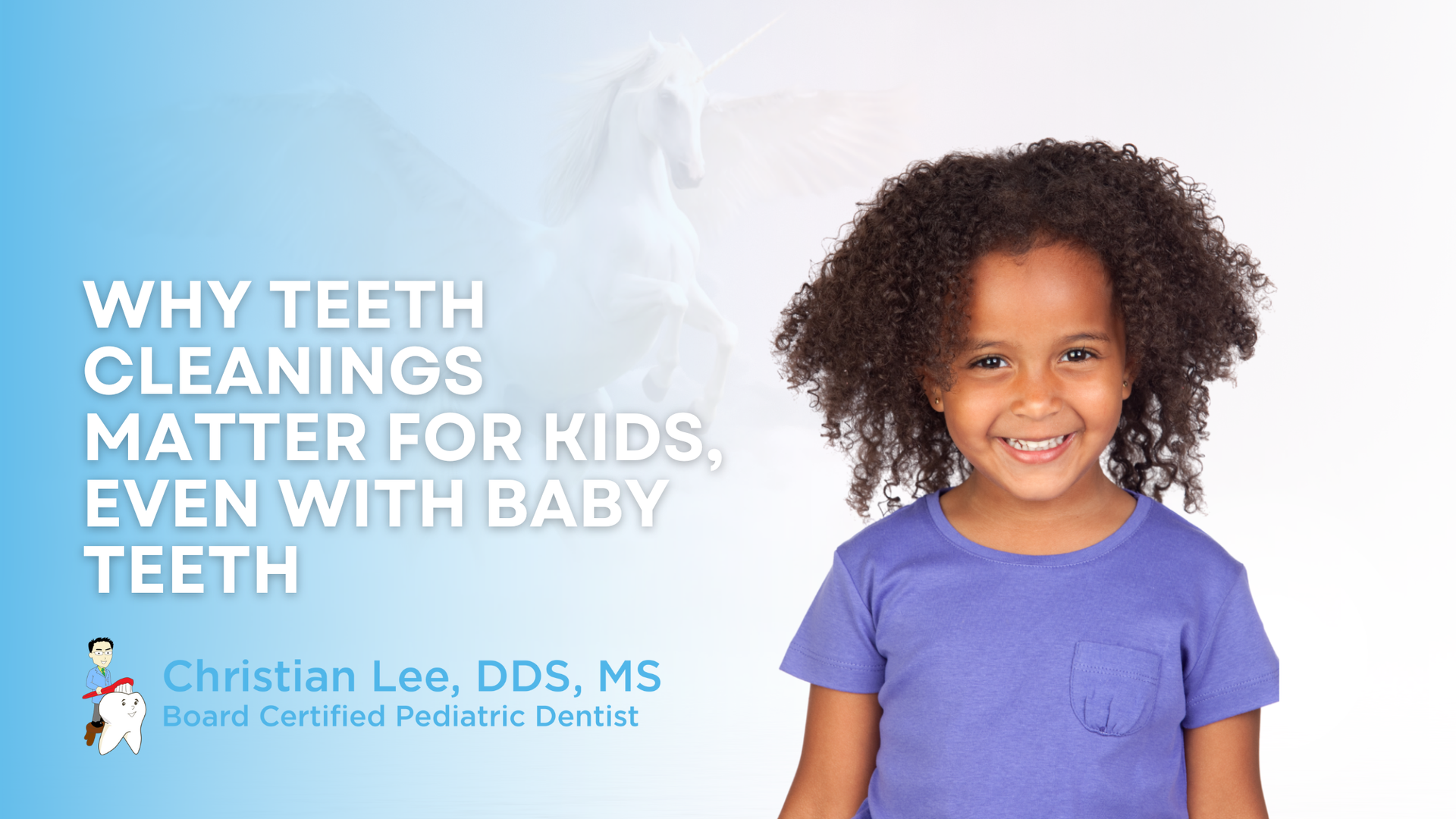Do Kids Really Need Oral Cancer Screenings? Busting the Myths

Source: Dr. Marketing
When parents think about oral cancer, children rarely come to mind. It is a condition often associated with adults—particularly those with a history of tobacco use, alcohol consumption, or prolonged sun exposure. Understandably, many parents are surprised to hear that oral cancer can, in rare cases, affect children too.
So when we mention oral cancer screening during a child’s checkup, a common question arises: “Is oral cancer screening really necessary for my child?”
The answer is yes—and not because children are at high risk, but because early detection saves lives, and children are not immune to the signs and symptoms that can signal early stages of oral cancer or other abnormal growths.
As we observe Oral Cancer Awareness Month this April, we want to equip parents with accurate, evidence-based information about pediatric oral cancer, the role of screenings, and how a few minutes during a routine dental exam can make all the difference in protecting your child’s health.
Understanding Oral Cancer in Children: How Rare Is It?

Oral cancer in children is uncommon but not impossible. According to medical literature, malignant oral lesions in the pediatric population account for a very small percentage of all childhood cancers. The most common types in children include mucoepidermoid carcinoma (a type of salivary gland tumor) and, less frequently, rhabdomyosarcoma, lymphomas, and squamous cell carcinoma.
While these cases are rare, they do occur—and early identification is critical. Many oral lesions in children are benign, such as traumatic ulcers, viral lesions, or irritation fibromas. However, without a trained eye, parents may not be able to distinguish a harmless sore from a potentially dangerous one. That is where regular oral soft tissue screenings become essential, even in the absence of known risk factors.
Why Oral Cancer Screenings Matter for Children

Though children may not face the same risk profile as adults, they are still vulnerable to abnormal changes in oral tissue, which—if left undetected—can progress or create long-term complications. Screenings are not solely about diagnosing cancer. They are a tool for:
- Identifying persistent ulcers, growths, or discolorations
- Monitoring suspicious lesions over time
- Detecting developmental anomalies
- Providing parents with early answers and peace of mind
When done consistently, oral cancer screenings give dental professionals the opportunity to flag changes in tissue health before symptoms arise. This proactive approach is especially important in children, who may not be able to explain discomfort or recognize when something is wrong.
How Oral Cancer Often Gets Overlooked in Pediatric Dentistry

One of the biggest challenges with pediatric oral cancer is how easily it is dismissed or missed altogether. Parents may assume a persistent sore is due to biting the cheek, or that a lump under the tongue is part of natural anatomy. If the child is not in pain, it is easy to overlook subtle tissue changes.
Unfortunately, because pediatric oral cancer is rare, it is not always top of mind in clinical settings either. Unless a provider is thorough in their exam and includes soft tissue screening as part of routine care, there is a risk that an abnormality could go undetected.
Children are also unlikely to speak up unless discomfort is severe. That is why routine screenings led by observant dental professionals play such a vital role in early detection.
Common Signs of Oral Cancer in Children

Although oral cancer in kids is rare, the signs are important to know. Contact us if any of these symptoms persist for longer than two weeks:
- A sore or ulcer in the mouth that does not heal
- A lump or swelling in the cheek, gums, or neck
- White, red, or mixed-color patches on the tongue or inner cheeks
- Persistent bleeding in the mouth
- Difficulty chewing, swallowing, or speaking
- Numbness or tingling in the lips or tongue
- A change in voice or persistent hoarseness
- Unexplained weight loss or fatigue (if systemic disease is involved)
Keep in mind that many of these signs are not unique to oral cancer, but their persistence is what warrants further evaluation. Early screening helps identify whether the concern is benign, infectious, or potentially malignant—and what steps should follow.
What Happens During an Oral Cancer Screening for Kids?

Oral cancer screenings are completely non-invasive, quick, and often go unnoticed by children. They are performed as part of a comprehensive dental exam and involve:
- Visual inspection of the lips, tongue, floor of the mouth, roof of the mouth, and back of the throat
- Palpation, or gentle feeling of tissues in the cheeks, jawline, and neck to detect unusual lumps or masses
- Observation of any unusual color changes, lesions, or asymmetries
- Review of history, including any recent trauma, habits like cheek biting, or new symptoms
The screening takes just a few minutes and can help your dentist determine whether the tissue appears healthy or needs further attention. No special equipment or sedation is required, and children generally tolerate it very well.
Debunking Common Myths About Pediatric Oral Cancer Screenings

“My child is too young to be screened.”
Screenings are recommended for all ages, especially once children begin regular dental visits. Early exams help establish a baseline of what is normal, making it easier to track changes over time.
“If my child does not have risk factors, they do not need screening.”
While most pediatric cases are not linked to traditional adult risk factors, genetic conditions, viral infections, and developmental anomalies can still lead to lesions or tumors. Screenings are a preventive measure, not a response to risk.
“Screenings are uncomfortable for children.”
The exam is gentle, quick, and painless. Most children do not even realize they are undergoing a cancer screening—it is simply integrated into their checkup.
How Christian K. Lee, DDS, MS Supports Early Detection

At Christian K. Lee, DDS, MS in Palo Alto, we believe that comprehensive pediatric dental care goes beyond cleanings and cavity checks. Our team is trained to perform detailed oral soft tissue screenings at every checkup to ensure no sign is missed—no matter how small.
We take the time to educate families about what to watch for at home and encourage open dialogue if something feels off between visits. We also maintain a strong referral network should a biopsy, second opinion, or specialized evaluation be needed.
During Oral Cancer Awareness Month this April, we invite parents to prioritize this often-overlooked aspect of their child’s health. A simple screening can offer peace of mind—and in rare cases, can be lifesaving.
Preventive Care Begins with Awareness

Pediatric oral cancer may be rare, but vigilance should not depend on statistics alone. Prevention and early detection remain the foundation of good health, and your child deserves access to every tool available to stay safe and well.
Screenings do not create anxiety or alarm. Instead, they create confidence—confidence that we are looking at every part of your child’s oral health, not just the teeth. They create clarity in situations where symptoms are vague or go unnoticed. And most importantly, they create a lifelong habit of proactive care.
Take Action This April: Schedule a Screening
As part of Oral Cancer Awareness Month, Christian K. Lee, DDS, MS located in Palo Alto encourages all families to take this opportunity to schedule a comprehensive dental exam for their child—one that includes a full oral cancer screening.
Whether your child is due for a checkup or you have specific concerns about their oral health, our team is here to help. Let us work together to make early detection a standard part of pediatric care, starting now. Book your child’s appointment today and join us in raising awareness this April. Together, we can protect young smiles—one gentle exam at a time.



